|
One of the traditions of the Jewish community during the holiday of Shavuot is to read the book of Ruth from the Bible. The story takes place during a difficult time in Israel. A famine in the land caused many families to leave their homeland in search of a place that had food. A man named Elimelech, from Bethlehem, took his family (his wife, Naomi, and sons Mahlon and Kilion) to Moab. While there Elimelech died. His sons had taken Moabite women (Ruth and Orpah) as their wives, but they too died within the tenth year of their sojourn. After these events, Naomi heard that God had come to the aid of her people, so she made plans to return to Bethlehem. She instructed her daughters-in-law to return to their families, but Ruth insisted on caring for Naomi and made her a promise: "...Where you go, I will go, and where you stay, I will stay. Your people will be my people and your God my God. Where you die, I will die, and there I will be buried..." (Ruth 1:16) This was indeed a sacrificial vow!
When Naomi and Ruth returned to Bethlehem, "The House of Bread," it was the beginning of barley harvest and the season of Shavuot where the Israelites would renew their commitment and dedication to God and celebrate His provision. The laws of Israel allowed widows and poor people to glean the crops missed by the reapers. It was an opportune time for Ruth to come to Bethlehem. Not only was she able to collect food for Naomi and herself, but she was in the field belonging to Boaz, a relative of Elimelech. Through the events of harvest, we see that God had a plan of restoration. As Ruth faithfully cared for her mother-in-law, she was noticed by Boaz who willingly watched over her. He encouraged her with his words. "May the Lord repay you for what you have done. May you be richly rewarded by the Lord, the God of Israel, under whose wings you have come to take refuge." (Ruth 2:12) Two Psalms remind us of what Boaz said. Psalm 57:1b, written by King David, says, "I will take refuge in the shadow of your wings until the disaster has passed." Psalm 91:4 declares, "He will cover you with His feathers, and under His wings you will find refuge..." For Ruth, gleaning in Boaz's field was so productive that Naomi questioned Ruth about its location. It was then that she realized that Boaz was a kinsman-redeemer for her family. This man could volunteer to care for the extended family. The transaction did take place on the threshing floor where the grain or inner kernel of the crop is separated from the chaff or outer shell. The barley or wheat would be thrown into the air so that the lighter chaff was blown away in a processp called winnowing. It seems to me that what was taking place at the threshing floor was also taking place in Ruth's life. She had been separated from everything she knew—her family, her homeland, and any security. In the spiritual realm, God was winnowing Ruth to prepare her for a life with God-ordained purposes. She was completely unaware that she was stepping into a family whose line would play a part in the birth of the Messiah of Israel. After Boaz arranged to marry Ruth, she conceived a son, Obed, who is David's grandfather. This story of self-sacrifice and sorrow turned to joy happened because seeds of love were planted by two desperate women in an extremely difficult situation. By following the God of Israel, they were able to play a part in God's plans for redemption and restoration. Like Ruth, sometimes we feel like our lives are on the rock-hard threshing floor. It is during these times that we must remember that the Lord is lifting us up to reveal the kernel of our hearts. He removes the outer shell to expose the core gifts He placed within us so that He can bring us into an expanded inheritance where He can use us to partner with Him in the growth of His Kingdom. God still restores and redeems so that "Those who sow with tears will reap with songs of joy. Those who go out weeping, carrying seed to sow, will return with songs of joy, carrying sheaves with them." (Psalm 126:5) God calls them festivals or feasts. They are explained to us in the book of Leviticus, Chapter 23. Three times a year, Jewish men were commanded to go to Jerusalem to give an offering to the Lord. Passover or Pesach, Pentecost or Shavuot, and Feast of Tabernacles or Sukkot are called "Pilgrim Feasts" because of the requirement for men to present themselves before God. All three of these feasts have to do with harvests and honoring God's provision, The feasts, in Hebrew, are called Moedim, which means "Appointed Times."
At sunset next Tuesday, the celebration of Shavuot will take place. Beginning on the day of Firstfruits or the day Jesus was resurrected and the day the firstfruits of the barley harvest were brought to the synagogue, Jews began to count: "Count off fifty days up to the day after the seventh Sabbath, and then present an offering of new grain to the Lord. From wherever you live, bring two loaves made of two-tenths of an ephah of the finest flour, baked with yeast, as a wave offering of firstfruits to the Lord." (Leviticus 23:16, 17) We can read about the expansion and fullness of Shavuot in Acts, Chapter 2. What happened in the upper room in Jerusalem reenacted what happened on Mount Sinai. Some of you may be asking why we should be celebrating Shavuot next week when the Church did so on Sunday, May 19. This is because the Church's traditional celebration of the resurrection of Jesus follows the Greek calendar instead of the Hebrew one. Their fifty-day count started much earlier than the one that started the second day of Passover. Since I grew up in a traditional church and understand the difference between the two calendars, I choose to remember both dates and believe all Christians should do likewise. On the Hebrew calendar, Shavuot falls on the sixth day of the third month of Sivan. Initially, Shavuot was a celebration of the wheat harvest. Added to it was the remembrance of this time when Moses received the two tablets with the laws of God written on them. Two is a significant number during this festival. Two loaves of bread with leaven in them are waved before God as an offering and can have several meanings. They could represent the two tablets of Torah containing the ten commandments. We could also conclude that they refer to two gifts--the gift of the law and that of The Holy Spirit. (Ruach Kadosh). Others believe that the two loaves are symbols of Jew and Gentile as the one new man written about in Ephesians 2:15. This reminds us that God fulfilled His covenant with Abraham to bless all nations through him. (Genesis 12:3) Since leaven symbolizes sinful humanity, we are reminded that the Body of Christ or The Church is made up of sinners but redeemed by the Lord. God selected the day when the people in Israel would be gathered to celebrate the wheat harvest to pour out HIs Spirit. Acts 2:1 says, "When the day of Pentecost came, they were all together in one place." The description of this continues in Acts 2:2-4. "Suddenly a sound like the blowing of a violet wind came from heaven and filled the whole house where they were sitting. They saw what seemed to be tongues of fire that separated and came to rest on each of them. All of them were filled with the Holy Spirit and began to speak in other tongues as the Spirit enabled them." This is a picture of what happened on Mount Sinai. "Mount Sinai was covered with smoke, because the Lord descended on it in fire." (Exodus 19:18) When Moses came down from the mountain, he saw the Israelites worshiping a golden calf that they built. Three thousand people died on that day because of their sin. However, on the day when the Holy Spirit was released, three thousand Jews became believers in Yeshua. Redemption has always been God's plan. Shavuot has been compared to a wedding for it was on this day that the Jews became "The Bride of Messiah." The Spirit of God wrote the law on the hearts of His people as Jeremiah 31:33 prophesies. The law of love became a priority. As we remember how God empowers His people during this season of Shavuot/Pentecost, let us thank Him for the harvest, recommit ourselves to His Word, and celebrate the gift of His presence through the Holy Spirit. God allows tests in our lives to prove our faith. Brian Simmons and his team of translators explain in a Genesis 22 footnote in The Passion Translation that "...The word 'tested' is derived etymologically from a word that means 'elevated banner' like a flag flying high above ship or a victory banner elevated over an army." The test that Abraham took made him great—so much so that he is called our Father of Faith. (Romans 4:11, 12) Abraham’s son, Isaac, was included in this test of faith. How so? Let's look at the story of God testing the faith of Abraham in Genesis 22. (I will be quoting from The Passion Translation.)
"God said, 'Please take your son, your only son, Isaac, whom I know you dearly love, and go to the land of Moriah. Offer him up to me as a burnt offering on one of the mountains I will show you.’" (Verse 2) Do not miss the significance of a burnt offering! It was a complete one in that everything was consumed by the fire. Only ashes remained after the burning. You could call this a sacrifice of total commitment. Also, it is interesting to note that Moriah means "chosen by Yahweh." Moriah comes from the root word meaning "sight" or "vision." This location is inside the present-day walls of Jerusalem, on the Temple Mount, where God would have Solomon build the Temple. Abraham and Isaac's journey to Mt. Moriah took three days. When the Mount was in view, Abraham told his servants to remain so that he and Isaac could go and "worship." Worship involves sacrifice. The wood for the offering was placed on Isaac's back. (This is a foreshadow of Christ carrying His cross.) Abraham carried the "knife and fire." This brings to mind God's requirement that each of us must carry the flame of God to truly worship Him. When Isaac questioned the whereabouts of the sacrificial lamb, Abraham responded, "My son, God will provide Himself the lamb for the burnt offering." (Genesis 22:8 - NKJV) Arriving at their destination, father and son must have had a terrifying moment. But Isaac allowed himself to be tied and laid on the altar of sacrifice. As Abraham took the knife in his hand to plunge it into his son, he heard the angel of the Lord call out to him. "Do not lay a hand on the boy or harm him, for now I know you are fully dedicated to me since you did not withhold your son, your beloved son, from me." (Verse 12) Not only were Abraham and Isaac confirming their faith in God, but they were allowing God to be "The Resurrected One." Obedience brings provision at the eleventh hour and deepens one’s capacity to obey. God came to Abraham with a ram for the burnt offering. He called the place where the sacrifice was given, "The Lord Will Provide" or "Jehovah Jireh." Not only did Abraham receive the provision for his sacrifice, but he also got a promise: "I will greatly bless you! I will make sure your seed becomes as numerous as the stars of heaven and as the sand of the seashore. Your offspring will take possession of the city gates of their enemies. Because you have obeyed me, the entire world will be blessed through your seed." (Verses 17, 18) We are Abraham's seed (Gal. 3:29), dear ones, and God continues to refine our faith. This means that we will have to go through tests that make no sense. He requires us to be obedient in following His instructions even when we do not know the details of what is involved. However, we can trust that the outcome will be glorious because Father God always provides for our needs and grows our faith in the process. It is called Yom Habikkurim in Hebrew and means The Feast of Firstfruits. "The Lord said to Moses, 'Speak to the Israelites and say to them: When you enter the land I am going to give you and you reap its harvest, bring to the priest a sheaf of the first grain of harvest. He is to wave the sheaf before the Lord so it will be accepted on your behalf. The priest is to wave it on the day after the Sabbath.'" (Leviticus 23:9-11) The children of Israel kept this feast not knowing it was a portend of the future.
The yearly Hebrew calendar for months begins with Nissan. The Lord intentionally placed it in the spring when new life is emerging. He said, "This month is to be for you the first month, the first month of the year." (Exodus 12:2) On the tenth of Nissan, each family would bring into their home a year-old, spotless male lamb. The lamb was to be slaughtered on Nissan 14 and the blood from that lamb placed upon the tops and doorframes of their homes. The reasons they did this was to protect themselves from the judgment plague of the death of the firstborn and to initiate the beginning of the Passover Festival that is to be celebrated yearly. Later, they followed with a firstfruits celebration on Nissan 16. Through the celebration of Firstfruits, the Israelites were to bring before the Lord the first and best of their harvest. Frequently they brought a sheaf of their barley harvest for the priest to wave before God. By bringing this offering, the people were declaring their trust in God for the coming harvest. The dates of these festivals are the same ones that our Passover Lamb, Jesus, was crucified and rose from the dead. Messiah said, "A single grain of wheat will never be more than a single grain of wheat unless it drops into the ground and dies. Because then it sprouts and produces a great harvest of wheat—all because one grain died." (John 12-24 - TPT) A footnote in The Passion Translation attached to this verse gives the Aramaic translation: "If it dies, it will bring forth a great rebirth." Jesus, the sacrifice for our sins, was accepted on our behalf by the Father as the perfect sacrifice, and He was raised to new life by the power of the Holy Spirit. 1 Corinthians 15:20-22 explains that Jesus is our Firstfruit offering: "But Christ has been raised from the dead, the firstfruits of those who have fallen asleep. For since death came through a man, the resurrection of the dead comes also through a man. For as in Adam all die, so in Christ all will be made alive." Romans 6:4 adds to our understanding: "Sharing in His death by our baptism means that we were co-buried and entombed with Him, so that when the Father's glory raised Christ from the dead, we were also raised with Him. We have been co-resurrected with Him so that we could be empowered to walk in the freshness of new life." (TPT) Jesus is our Passover Lamb and our offering of Firstfruits. Since we are in the month of Nissan, it is time for us to acknowledge what the Lord did for us. When we give God our first and best offerings, we are saying to Him that we are setting this aside as an act of worship and devotion to Him. While Firstfruits is no longer tied to growing grains and produce, we can demonstrate our devotion to the Lord through our time, resources, and love. We have a promise in Proverbs 3:9, 10. "Glorify God with all your wealth, honoring Him with your very best (firstfruits), with every increase that comes to you. Then every dimension of your life will overflow with blessings from an uncontainable source of inner joy." (TPT) Not only is Jesus remembered as our resurrected King on Nissan 16, but it is the day when God's people practice what is called "Counting the Omer." (Omer means sheaf.) In the counting, the Lord's faithfulness is acknowledged daily. This occurs for fifty days until the next harvest when the Holy Spirit was poured out. Through this counting, we have a special opportunity to draw close to God daily. Here is how I count the Omer: I keep a gratitude journal and record my blessings in it daily. Maybe recording this daily thanksgiving to the Lord would bless you as it has blessed me. Before HIs death, Jesus celebrated the Passover with His disciples. He told them, "I have eagerly desired to eat this Passover with you before I suffer." (Luke 22:15) Long ago, when the children of Israel were still in bondage in Egypt, God established a yearly calendar for His people that was centered on the Passover remembrance. He instructed the Israelites to bring a spotless lamb into their homes on the tenth day of the first month, Nissan. At twilight on the fourteenth day, the lambs were to be slaughtered and their blood placed on the sides and tops of the doorframes of their homes so that the angel of death would pass over their homes. God's people were to eat a special meal and prepare for their deliverance from bondage. In Exodus 12:17 we are told, "...Celebrate this day as a lasting ordinance for the generations to come." Robert Stearns of Eagles' Wings ministry puts it this way: "This historic event is important because it was commissioned by God in Exodus.”
Passover begins at sundown tomorrow. Jesus was crucified after celebrating the Passover with His disciples. You may wonder why we celebrated Resurrection Sunday a month ago. My only explanation is that man evades God's domain, and such is the case with this festival. In early 300 A.D., it seems that the churches around the world had disagreements about the divinity of Christ and the time to celebrate Easter. Emperor Constantine wanted peace, so in 325 A.D. he called together Christian bishops for a meeting known as the Nicene Council. Passover is a festival meant to memorialize Christ's death, but the Council wanted to focus on His resurrection. They also wanted this celebration to occur on the same day of the week every year. To do this, they decided to sever the connection to Passover by using a different calendar. To justify their decision, blame for Christ's death was placed squarely on the Jews. The Council's secretary wrote, "...It appeared an unworthy thing that in the celebration of the most holy feast we should follow the practice of the Jews, who have piously defiled their hand with enormous sin..." In accordance with the Nicene Council, the focus on the death and sacrifice of Jesus Christ was diminished. Those saints who desired to live according to God's word in keeping the Passover had to do so secretly. The Church began blending pagan cultures with Easter, and this day was fixed as the first Sunday after the full moon of the vernal equinox. Years of following the Gregorian calendar has cut the Church from Her Jewish roots and created a division that is hard to overcome. Tomorrow night Jews will be preparing their Passover meals called a Seder. Jesus reclined at a table after HIs disciples prepared for their own Seder. Afterward, Jesus would shed His blood on a cross and remove our sins so that we can have eternal life with Him. "God made Him who had no sin to be sin for us, so that in Him we might become the righteousness of God." (2 Corinthians 5:21) God established the holy season of Passover so that we would remember that Jesus is our Passover Lamb. The Israelites were instructed to remove leaven from their homes during Passover because this is a symbol of sin. Apostle Paul instructed the Corinthians, "Get rid of the old yeast that you may be a new batch without yeast--as you really are. For Christ, our Passover Lamb, has been sacrificed. Therefore, let us keep the Festival, not with old yeast, the yeast of malice and wickedness, but with bread without yeast, the bread of sincerity and truth." (1 Corinthians 5:7, 8) May I suggest that during this Passover week we meditate on God's Word and the matchless gift of God to us in His Son, Jesus Christ, the pure and spotless Lamb of God? On Friday, at noon, we contemplated what Jesus did for us on the cross. His death was gruesome! The most horrible form of execution is crucifixion. It came after a scourging that opened every pain cell in the person's body. Naked, Jesus was nailed to the crossbeam of the cross. The cross was raised up and positioned so that Jesus could look down at those who mocked and insulted Him. Death was slow and agonizing. It came about through the loss of blood circulation followed by coronary failure or through the collapse of the lungs, causing suffocation. For six hours Jesus’ body suffered this torture.
Jesus knew what was to come while he walked the earth. In the Garden of Gethsemane, He got real with Father God. "My Father, if it is possible, may this cup be taken from me. Yet, not as I will, but as you will." (Matthew 26:39) He prayed again. "My Father, if it is not possible for this cup to be taken away unless I drink it, may Your will be done." (Matthew 26:42) Scripture records that He prayed a third time. "So, He left them (the disciples) and prayed a third time, saying the same thing." (Matthew 26:44) The worst part of the agony that Jesus would have to endure was His alienation from God after He took our sins upon Himself when He cried, “My God, My God, why have You forsaken Me?” (Matthew 27:46) Before Christ's death and resurrection our sins separated us from God. This separation is a form of death that we cannot change alone. Because Jesus is the Son of God and never sinned, only He can be the bridge that reconnects us to Father God. Our penalty should have been death, but Jesus offered His life for ours. He redeemed us from the curse that is produced through sin by becoming a curse for us. (Galatians 3:13) He took on Himself all our sin--past, present, and future. Because of this, all our wrong doings are forgiven, and we are reconciled to God. How do we know that the sacrifice of Jesus on the cross was acceptable to God? It was His resurrection from the dead that lets us know we are forgiven and redeemed. In Romans 4 we are told that Abraham was credited with righteousness because he believed God. "The words 'It was credited to him,' were written not for him alone, but also for us, to whom God will credit righteousness for us who believed in Him who raised Jesus our Lord from the dead. He was delivered over to death for our sins and also raised to life for our justification." (Romans 4:23-25) This is why we rejoice and give praise for this resurrection today. I am interested in how the earth responded to the death and resurrection of Jesus. At both events, there was an earthquake that was so violent that “the earth quaked, and the rocks were split.” (Matthew 27:51 – NKJV) The Creator of the world took charge and prepared the earth for a new day. It was the third day, the day set aside for Jesus to rise from the dead. Since the Bible says we were crucified with Him and raised with Him, we should live the rest of our lives in the power of this truth. We now live in newness of life. (Romans 6:4-5, Colossians 2:11-12) Hallelujah! How blessed we are to have founding Fathers whose prayers helped establish America. Since our President’s Day celebration just passed, I thought it would be fitting to honor our first president, George Washington. Breaking Christian News did so by quoting from Eddie Hyatt's book, 1726: The Year that Defined America. Hyatt is an historian, Bible teacher, and revivalist who has tracked America's leaders and recorded their sayings as they pertain to God and the Bible. He floats the theory that the only reason the American troops were able to defeat the British was because of prayer. Washington was given a seemingly impossible task to challenge the British militia with his band of rag-tag soldiers. In his book, Hyatt says "Washington knew his only hope lay in a profound conviction in the hearts and daily actions of all his men that what they did, they did for God, and under God's protection." (Hyatt, pg. 114)
The American soldiers were united around the altar of prayer daily. In fact, Washington issued an order stating that each day would begin with prayer led by the officers. Again, I quote Hyatt: "Every soldier was to observe a punctual attendance of Divine services, to implore the blessing of Heaven upon the means for our safety and public defense." Apparently, Washington was insistent that every soldier attend daily prayer but also, they were forbidden the following: profanity, swearing, gambling, and drunkenness. His rational for this is written about by Hyatt: "We can have little hope of the blessing of Heaven on our arms if we insult Him by our impiety and folly. Every officer and man will endeavor so as to live and act as becomes a Christian soldier." When Washington and his men had their long, cold, tiring winter at Valley Forge, they were visited by Rev. Henry Muhlenberg, the pastor of a nearby Lutheran Church. Muhlenberg noted that Washington "admonished" his men "to fear God." He goes on: "This gentleman does not belong to the so-called world of society, for he respects God's Word, believes in the atonement through Christ, and bears himself in humility and gentleness. It appears that the Lord God has singularly, yea marvelously, preserved him from harm in the midst of countless peril...and hath hitherto graciously held him in His hand as His chosen vessel." (Hyatt, pg. 115) Visitors to Washington's camps confirmed that he made a habit of going into the woods for a time of prayer with the Almighty. It would be good for us to remember that not only did Washington and his troops pray, but when the Continental Congress opened, each of their sessions started with prayer. In addition, proclamations for national days of repentance, and prayer, and fasting were regularly issued. It is God alone who brought victory to the American Troops and brought about the surrender of British General Cornwallis on October 19, 1783. What an example we have to follow through George Washington! How has America fallen so far from the vision of our founding fathers? There are times, when I pray for others, that I point out the following: "You can tell the greatness of the call on their lives by the fierceness of the attack on them." This is true of America, and that God placed a call on our nation to be an example to all the world of what a godly nation should look like. Because of this call, the forces of darkness have targeted us for destruction, and waged a campaign to destroy us. We are in a battle for the very call on our lives. This battle can only be won as we return to God's call on our nation and our godly foundations. 1 Thessalonians 5:16-18 admonishes us, "Rejoice always, pray continually, give thanks in all circumstances; for this is God's will for you in Christ Jesus." If George Washington won the Revolutionary War through prayer, the Christian community can win the war against the darkness and be reestablished as a saved nation. Let us keep praying for our nation, as prayer is the weapon of our warfare that will transform the world. Every four years we experience a leap year which means that we have 366 days in the year instead of 365. It actually takes 365.242190 days for the earth to orbit the sun. Without the adjustment, the seasons "drift." So, one day is added to our calendars at the end of February. The Hebrew calendar also has a leap year. However, it is necessary for their calendar to have an entire month added to it so that their holidays fall in the proper season. The Bible makes it clear that the first month (Nisan) is to occur in the spring and the seventh month (Tishrei) during the fall harvest. In addition, since the Hebrew calendar is lunar, and our calendar is solar, the leap year helps correct the imbalance between the two calendars. There are seven leap years every nineteen years in the Hebrew calendar.
The last month on the Hebrew calendar is Adar. Since this is a leap year, we have an extra Adar month. Though Purim is celebrated during Adar II, we should still connect to the aspects of this month during Adar I. Adar means strength. God tells us in Isaiah 40:29-31, "He gives strength to the weary and to him who lacks might He increases power. Though youth grow weary and tired, and vigorous young men stumble badly, yet those who wait for the Lord will gain new strength. They will mount up with wings like eagles, they will run and not get tired, they will walk and not become weary." (NAS) What a promise! Earlier in Isaiah 40 it explains that all creation should make a way for the Lord as His Word "stands forever." (Isaiah 40:8) He comes to comfort His people and assures them of this: "Behold, the Lord God will come with might, with His arm ruling for Him. Behold, His reward is with Him and His recompense before Him." (Isaiah 40:10 - NAS) The chapter goes on to rejoice in the characteristics of the Lord that include the truth that He made all creation, and that justice, knowledge, and understanding are His. Verse 18 asks an important question: "To whom will you liken God? Or what likeness will you compare with Him?" (NAS) "Lift up your eyes on high and see who has created these stars. The One who leads forth their host by number, He calls them all by name. Because of the greatness of His might and the strength of His power, not one of them is missing...Do you not know? Have you not heard? The Everlasting God, the Lord, the Creator of the ends of the earth does not become weary or tired; His understanding is inscrutable." (Verses 26 and 28 - NAS) God gives strength to us through joy. As it says in Nehemiah 8:10, "The joy of the Lord is our strength.” This word was given to God's people after Ezra the priest read the law to them. Verse 12 of Chapter 8 tells us that all the people "celebrated with great joy, because they understood the words that had been made known to them." Since God is the Word (John 1:1) this explains Psalm 16:11. "...In Your presence is fullness of joy." (NAS) Isn't it wonderful that during this leap year we can focus on having two months of strength and joy? Being in the Lord's presence is the key to both gifts. How often does a church congregation have assigned homework? Two weeks ago, our pastor, George Matthew Clash, suggested that we read Psalm 119 daily. I decided to read it in a different version each day and started reading from the Revised Standard Version Bible that I received as a teenager. Next, I read from the New Living Translation, then King James, Amplified, New American Standard, New International Version, and finally The Passion Translation. As I read, I highlighted those verses that were particularly meaningful to me in each translation.
Psalm 119 is a tribute to the Word of God presented in an orderly way. It is the longest psalm in the Bible and is divided into twenty-two stanzas, each with eight verses, and with a total of 176 verses. The Psalm is an acrostic poem where the verses of each stanza begin with a different Hebrew letter. The entire Hebrew alphabet is covered in succession from "alef" to "tau." The eight Hebrew words used to refer to the Word of God in Psalm 119 are law, commandments, ordinances, precepts, decrees, word, promises and statutes. I would like to share with you some of the verses that I highlighted: At the very beginning, the Psalmist makes it clear that God's Word provides a pathway of blessing for us. Both The King James and Revised Standard Version say the same thing in Verse 2. "Blessed are those that keep his testimonies, who seek him with their whole heart." The Passion Translation puts the verse a little differently. "What joy overwhelms everyone who keeps the ways of God, those who seek him as their heart's passion!" Verse 11 is one that I memorized as a girl: "Your word I have treasured in my heart, that I may not sin against you." (NAS) or "I have hidden your word in my heart that I might not sin against you." (NIV) I love the way The Passion Translation articulates verse 48. "I long for more revelation of your truth, for I love the light of your word as I meditate on your decrees." Verse 54 from the NAS version says, "Your statutes are my song in the house of my pilgrimage." Verses 89 and 90 are ones we should all camp on. "Forever, O Lord, thy word is settled in heaven. Thy faithfulness is unto all generations..." (KJV) The Passion Translation says it this way: "Standing firm in the heavens and fastened to eternity is the word of God. Your faithfulness flows from one generation to the next; all that you created sits firmly in place to testify of you." Michael W. Smith and Amy Grant help us to remember the words of verse 105 with their beautiful song, "Thy Word." Thy word is a lamp to my feet and a light to my path." (RSV) The Passion Translation has an interesting way to translate this verse. "Truth's shining light guides me in my choices and decisions; the revelation of your word makes my pathway clear." The New American Standard Version translates verse 137 this way: "Establish my footsteps in Your word, and do not let any iniquity have dominion over me." Several verses talk about the mercies or compassion of the Lord. Verse 156 is one such verse. "Your compassion is great, O Lord; preserve my life according to your laws." (NIV) Verse 160 in The Passion Translation says, "The sum total of all your words add up to absolute truth, and every one of your righteous decrees is everlasting." Amen! Our responsibility, as lovers of God's word, is to delight in His commands and meditate on them regularly. Then we will be walking on the path of enlightenment and blessing. According to Romans 11, the Church has been grafted into the Olive tree. (representing Israel) Thus, we "share in the nourishing sap from the olive root." (Romans 11:17) It is the root of this olive tree that supports us. This being the truth, would it not follow that when Israel is at war, the Church must also be at war? Ephesians 2:13-15, 18 explains: "But now in Christ Jesus you who once were far away have been brought near by the blood of Christ. He Himself is our peace, who has made the two groups one and has destroyed the barrier, the dividing wall of hostility, by setting aside in His flesh the law with its commands and regulations. His purpose was to create in Himself one new humanity out of the two, thus making peace...For through Him we both have access to the Father by one Spirit."
It is a fact that Satan hates what God loves. He stations demonic principalities over every region. Since Israel and the Church are one, what impacts one impacts the other. As I awoke on Saturday morning, Holy Spirit placed a song on my mind" "Onward, Christian Soldiers." It was written by Sabine Baring-Gould, a Church of England minister who was inspired to write this song so that the children of his church could sing it while marching from village to village. He writes that the entire song came to him within 15 minutes. The text for this hymn became an inspiration to Christians around the world. It is one to use while taking on our responsibilities of advancing the cause of Christ. It is a battle cry for the Church and Israel. Verse 1: "Onward, Christian soldiers, marching as to war, with the cross of Jesus going on before! Christ the royal Master, leads against the foe; forward into battle see His banner go!" Refrain: "Onward, Christian soldiers, marching as to war, with the cross of Jesus going on before!" Verse 2: "Like a mighty army moves the Church of God; brothers, we are treading where the saints have trod. We are not divided, all one body we—One in hope and doctrine, one in charity." (Refrain) Verse 3: "Onward, then, ye people, join our happy throng; blend with ours your voices in the triumph song. Glory, laud, and honor unto Christ the King—This thru countless ages men and angels sing." (Refrain) During this season, we must "Be alert and of sober mind. Our enemy the devil prowls around like a roaring lion looking for someone to devour. Resist him, standing firm in the faith, because we know that the family of Believers throughout the world is undergoing the same kind of suffering." (1 Peter 5:8, 9) Our battle tools are two-fold: Prayer and Worship. Let us use them on behalf of Israel and the Church. Victory has already been won at the Cross of Christ. Our job is to manifest it. |
Joan E. MathiasCategories
All
Archives
July 2024
|



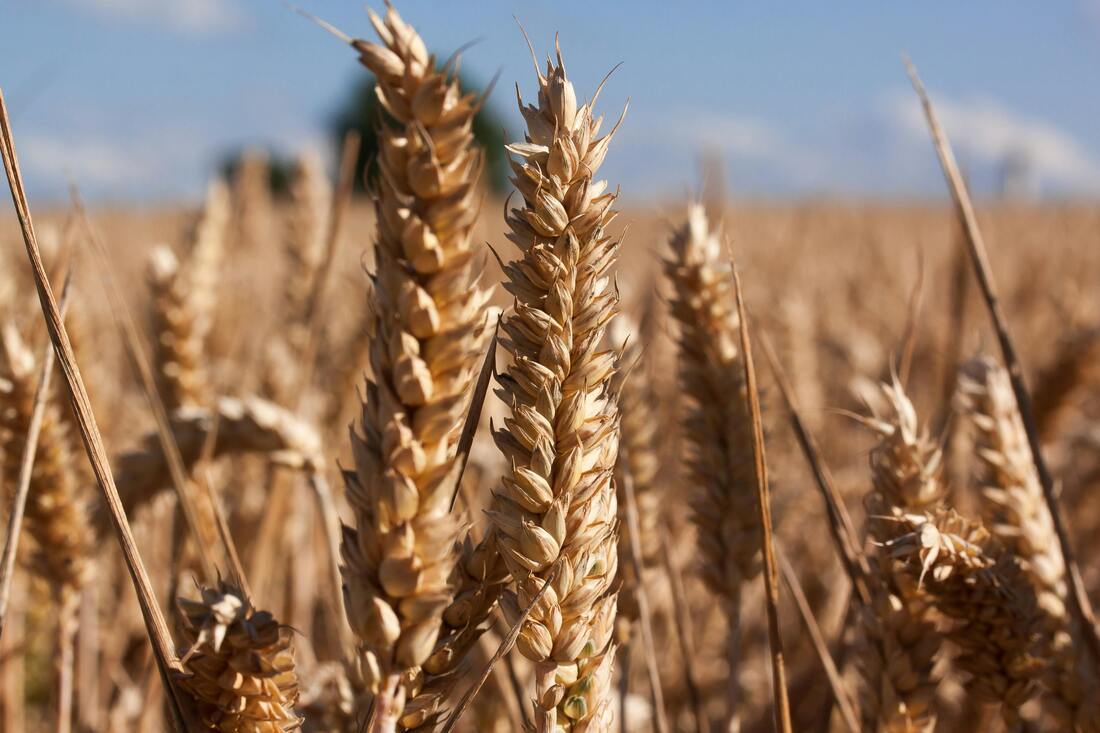
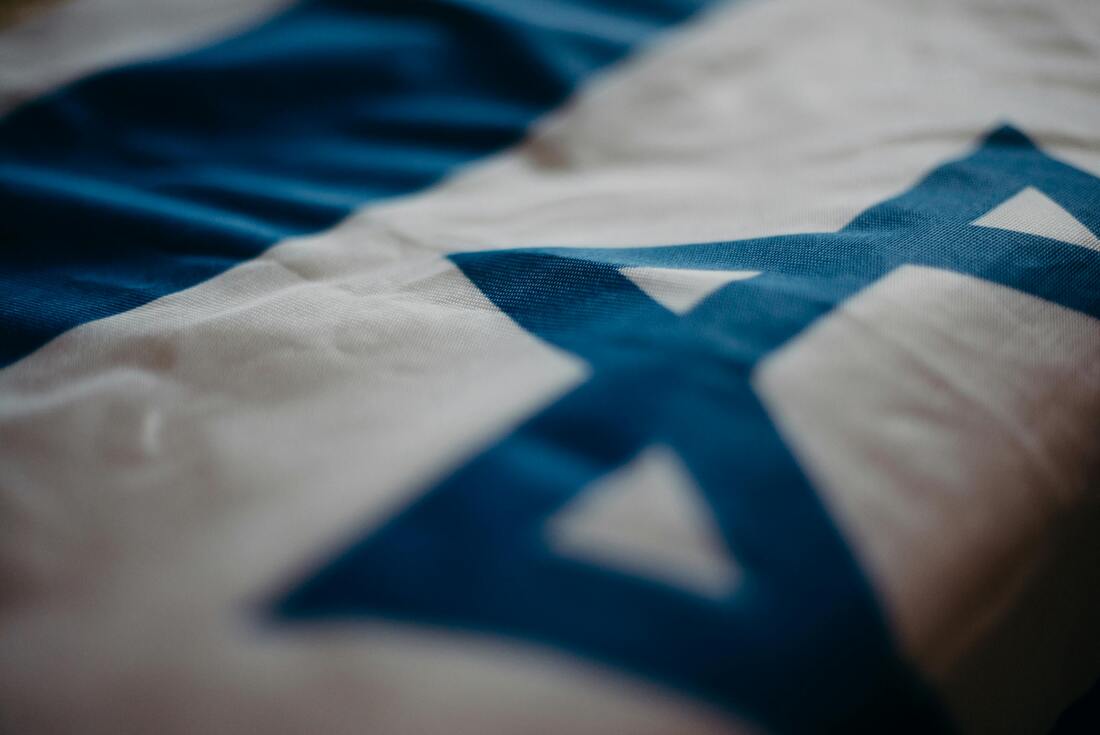
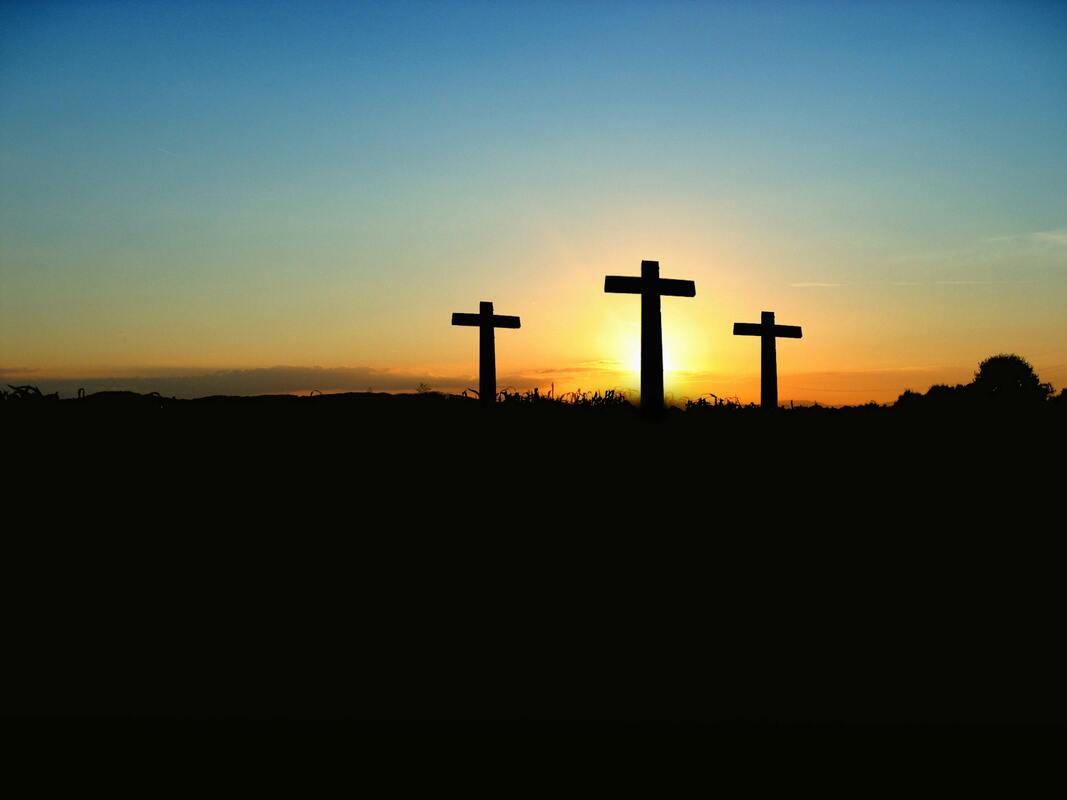
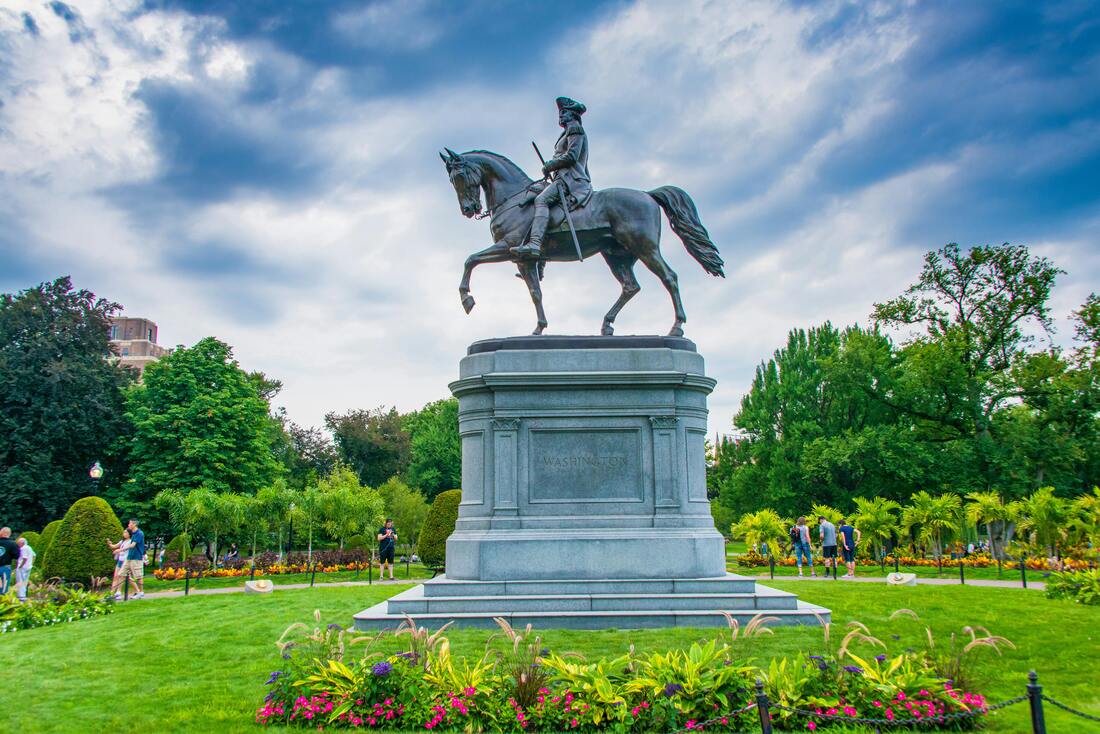
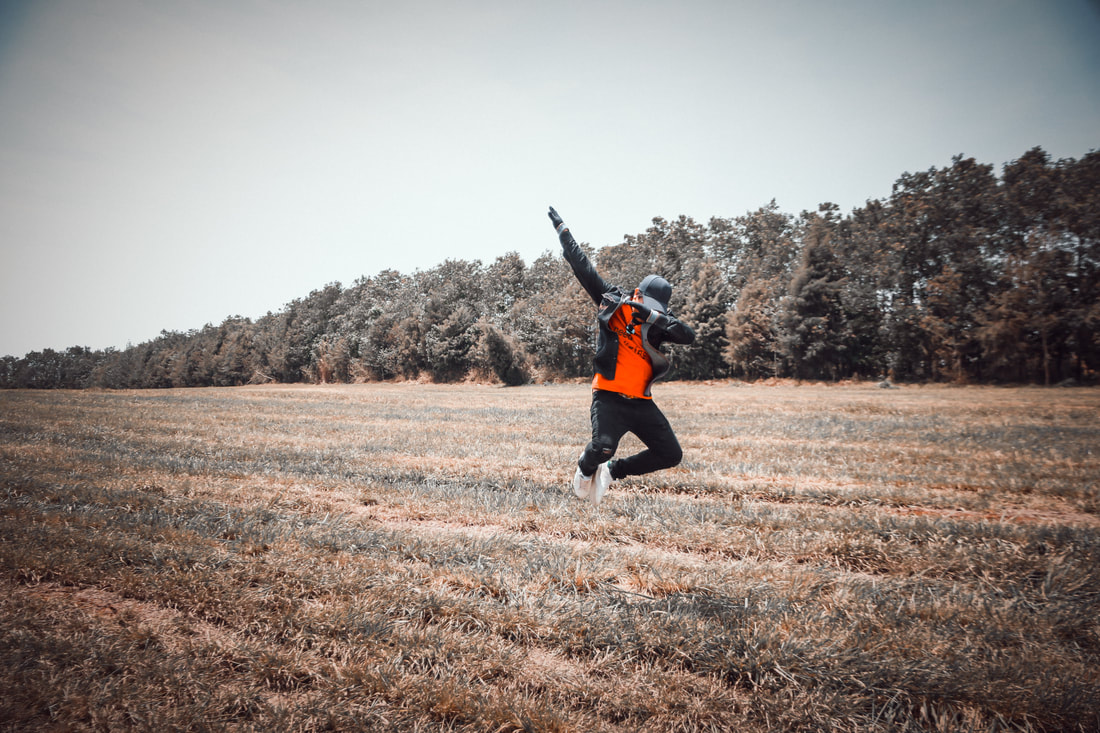
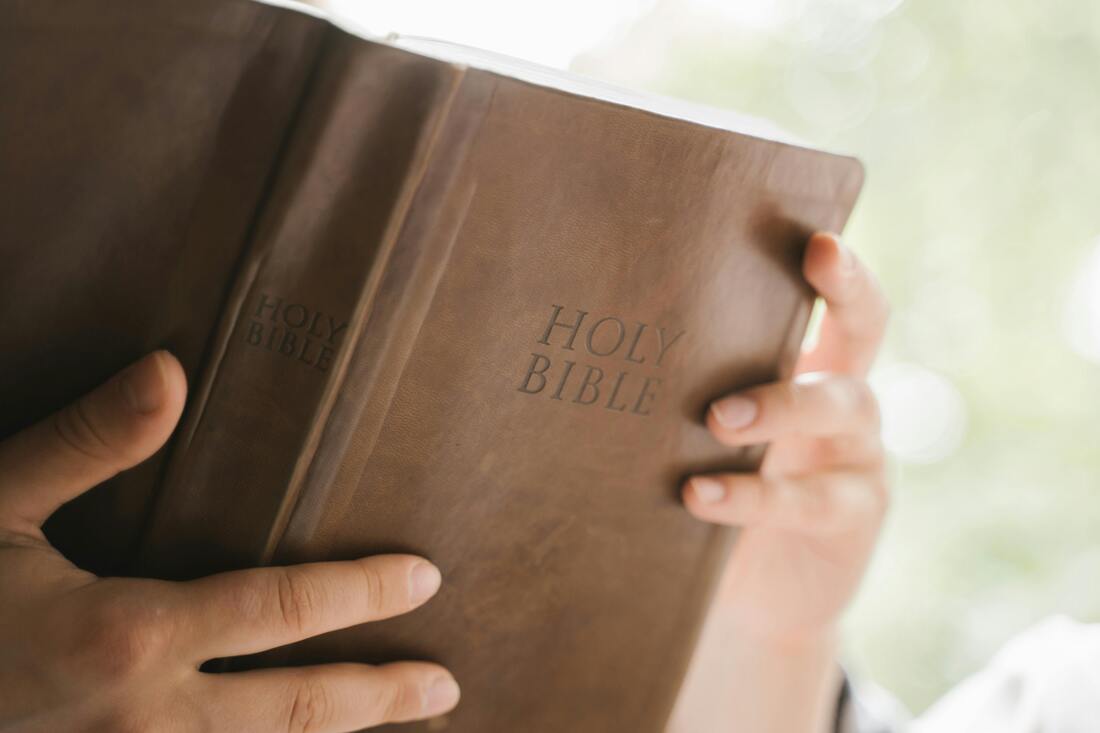
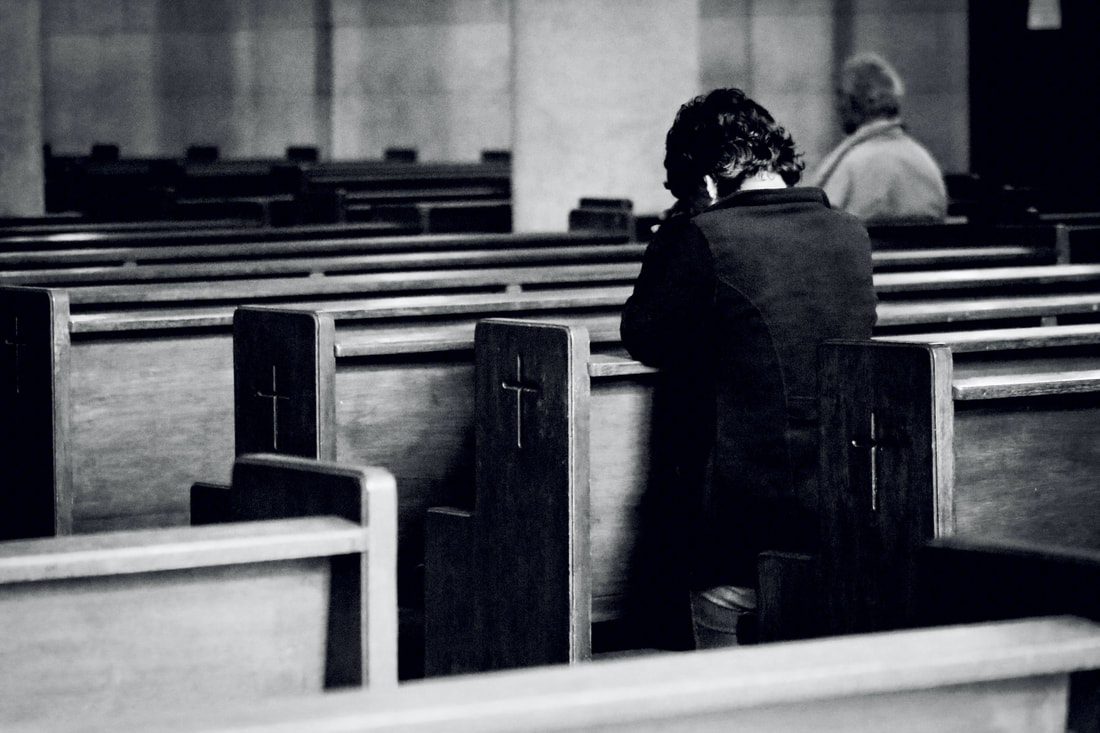
 RSS Feed
RSS Feed